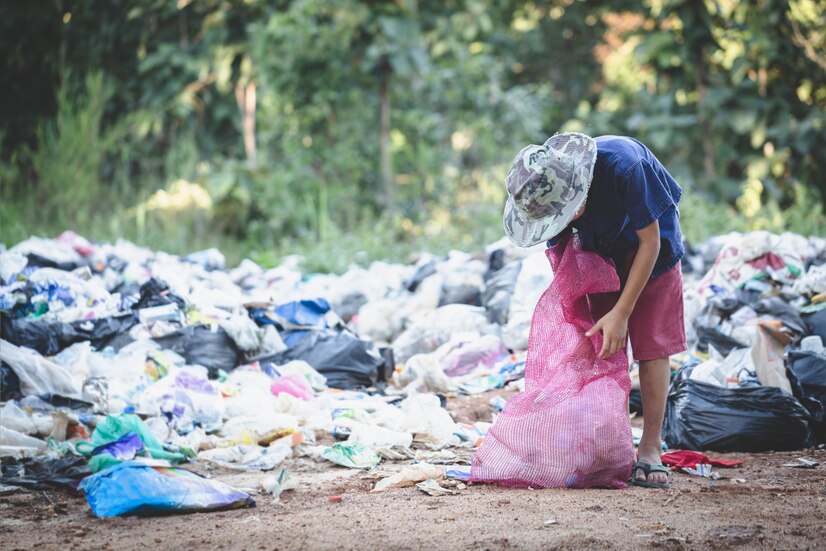

In the bustling cities of today, where progress and development paint a picture of prosperity, the reality for many urban dwellers, particularly the poor, is far from idyllic. Amidst the towering skyscrapers and bustling streets, inadequate sanitation facilities pose a significant challenge, exacerbating health risks and perpetuating poverty. Recognizing the urgency of this issue, the City Aid Foundation has emerged as a beacon of hope, championing sanitation support initiatives tailored to the needs of the urban poor. In this narrative, we delve into how City Aid Foundation’s commitment to sanitation is transforming lives and communities.

Access to safe and adequate sanitation is a basic human right, yet millions of people worldwide lack access to basic sanitation facilities, particularly in urban areas. For the urban poor, the lack of proper sanitation infrastructure poses a myriad of challenges, including increased risk of waterborne diseases, environmental degradation, and compromised dignity. Overcrowded slums and informal settlements often lack access to clean water, toilets, and proper waste management systems, creating a breeding ground for disease and despair.
City Aid Foundation’s Approach: City Aid Foundation understands that addressing the sanitation crisis requires a multifaceted and community-centered approach. Their sanitation support initiatives are designed to not only provide immediate relief but also to empower communities to sustainably manage their sanitation needs in the long term.
1. Provision of Sanitation Infrastructure: At the heart of City Aid Foundation’s efforts is the provision of essential sanitation infrastructure tailored to the needs of the urban poor. This includes the construction of community toilets, installation of handwashing stations, and improvement of water supply systems in underserved areas. By bringing these facilities closer to the communities they serve, the foundation ensures greater access and uptake, thereby improving health outcomes and quality of life.
2. Hygiene Promotion and Behavior Change: Access to sanitation infrastructure alone is not enough; promoting good hygiene practices and behavior change is equally essential. City Aid Foundation conducts extensive hygiene promotion campaigns, engaging with local communities to raise awareness about the importance of handwashing, safe water storage, and proper waste disposal. Through interactive workshops, demonstrations, and educational materials, participants are empowered to adopt healthier habits and reduce the risk of waterborne diseases.
3. Capacity Building and Community Engagement: Empowering communities to take ownership of their sanitation needs is central to City Aid Foundation’s approach. The foundation works closely with local residents, providing training and capacity-building opportunities to equip them with the skills and knowledge necessary to sustainably manage their sanitation facilities. Community-led sanitation committees are formed to oversee the maintenance and operation of sanitation infrastructure, fostering a sense of ownership and accountability within the community.

The impact of City Aid Foundation’s sanitation support initiatives is tangible, transforming the lives of urban poor communities across cities worldwide. Through the provision of sanitation infrastructure and hygiene promotion activities, preventable diseases are being averted, leading to improved health outcomes and enhanced quality of life. Moreover, the empowerment and engagement of local communities foster a sense of pride and dignity, as residents take control of their sanitation needs and advocate for their rights.
One inspiring success story is the transformation of the Kamrangirchar slum in Dhaka, Bangladesh, where City Aid Foundation implemented a comprehensive sanitation support program. Through the construction of community toilets, promotion of handwashing practices, and capacity building of local residents, the prevalence of waterborne diseases decreased significantly, and community cohesion strengthened. Today, Kamrangirchar serves as a model of sustainable sanitation management, inspiring similar initiatives in urban areas worldwide.
Challenges and Future Directions: Despite its successes, City Aid Foundation faces challenges in its mission to champion sanitation support for the urban poor. Limited resources, logistical constraints, and cultural barriers often hinder the implementation and sustainability of sanitation initiatives. However, the foundation remains committed to overcoming these challenges through innovation, collaboration, and strategic partnerships.
Looking ahead, City Aid Foundation envisions expanding its reach to more underserved communities, leveraging technology to enhance sanitation service delivery, and advocating for policies that prioritize sanitation as a fundamental human right. By building on its successes and learning from its challenges, the foundation seeks to create a future where every urban dweller, regardless of socio-economic status, has access to safe and adequate sanitation facilities.
In the face of the sanitation crisis plaguing urban areas, City Aid Foundation stands as a beacon of hope, championing sanitation support initiatives that transform lives and communities. Through its holistic approach, the foundation not only provides essential sanitation infrastructure but also empowers communities to sustainably manage their sanitation needs. As we strive for a more equitable and inclusive society, let us draw inspiration from initiatives like City Aid Foundation, forging a path towards a healthier and more dignified future for all.
